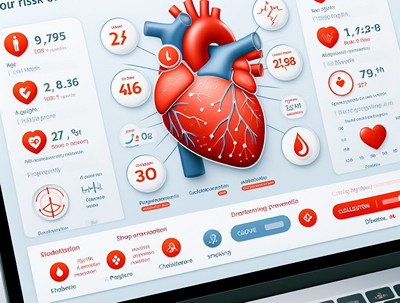Utilizing a cardiovascular risk calculator can be a proactive step towards understanding your heart health and taking measures to reduce your risk of cardiovascular disease. Here's how you can effectively use a cardiovascular risk calculator:
- Access a Reliable Calculator: Choose a reputable cardiovascular risk calculator endorsed by medical associations or developed by trusted healthcare organizations. Many credible calculators are available online or as mobile applications. Here I am giving link of ASCVD risk calculator developed by Americal college of Cardiology. Note that this calculator has not been primarily developed for indian people and may underestimate risk.
- Gather Necessary Information: Before using the calculator, gather relevant information about your health status and lifestyle habits. This typically includes your age, gender, blood pressure readings, cholesterol levels (total cholesterol, HDL cholesterol, LDL cholesterol), smoking status, and presence of diabetes.
- Input Your Data: Enter the requested information into the calculator accurately. Be honest and thorough when providing details about your health history and lifestyle habits to ensure an accurate risk assessment.
- Review Your Results: Once you submit your information, the calculator will generate a personalized cardiovascular risk score. This score estimates your likelihood of experiencing a cardiovascular event, such as a heart attack or stroke, within a specified time frame (e.g., 10 years).
- Interpret Your Risk Level: Evaluate your risk score and understand what it means for your heart health. Risk scores are typically categorized into low, moderate, and high risk levels. Your Cardiologist can help you interpret your risk level in the context of your overall health and medical history.
- Discuss Results with Your Cardiologist: Schedule an appointment with your cardiologist to review the results of your cardiovascular risk assessment. Discuss any concerns or questions you may have and collaborate on developing a personalized plan to manage your cardiovascular risk.
- Implement Risk Reduction Strategies: Based on your risk level and individualized assessment, your cardiologist may recommend lifestyle modifications (e.g., healthy diet, regular exercise, smoking cessation) and/or medication therapy to reduce your risk of cardiovascular disease. Follow their guidance closely to optimize your heart health.
- Monitor Your Progress: Regularly monitor your cardiovascular risk factors, such as blood pressure, cholesterol levels, and blood sugar levels, as recommended by your Cardiologist. Periodic reassessment of your cardiovascular risk can help track your progress and guide adjustments to your treatment plan, if necessary.
Click here to use this calculator.
By utilizing a cardiovascular risk calculator and working closely with your Cardiologist, you can take proactive steps towards reducing your risk of cardiovascular disease and maintaining a healthy heart for years to come.




